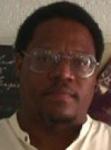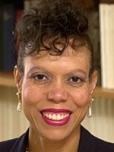Introduction
The history of black theological education is increasingly perceived as being of critical importance to our understanding of the black church and its relationship with the wider Christian community. Recent studies have also suggested that this history is of critical importance to efforts aimed at enhancing the effectiveness of contemporary black theological education. Unfortunately, histories of the theological education of blacks at some of the most prominent and important centers of theological education in this nation have yet to be written. This collaborative project, titled “‘Been in the Storm So Long’: Yale Divinity School and the Black Ministry—One Hundred and Fifty Years of Black Theological Education,” attempts to make a modest but important contribution to the correction of this oversight by chronicling and preserving the history of the black presence at Yale Divinity School from the 1830s to the mid-1980s.
Purpose
The purpose of this study is to contribute to the understanding of the history of theological education for blacks in America, linking church and academy, with particular attention to the experience of blacks at Yale Divinity School. It also seeks to elucidate the impact that theological education at YDS had on the lives and careers of generations of church and community leaders, many of whom have made significant contributions both at home and abroad. In addition, this study will attempt to ascertain effective (as well as ineffective) strategies employed in the theological education of blacks in hopes of contributing to the formation of new paradigms for black theological education.
Forums
Throughout the course of this study, a series of public forums have been convened. The inaugural forum, made up of Black YDS alums from the 1940s and 1950s, was held on February 15, 2005. It examined the pedagogy of gender and racial inclusion at YDS. Forum participants included Dr. Richard I. McKinney (YDS ‘42), former president of Storer College, professor of philosophy emeritus, and former chair of the Department of Philosophy at Morgan State University; Rev. Dr. Rena Weller Karefa-Smart (YDS ‘45), first black woman graduate of YDS, proponent of global ecumenism, Episcopal priest, and former professor of Christian Ethics at Howard University School of Religion; Rev. Samuel Slie, (YDS ‘52, ‘63) former associate pastor of the Church of Christ at Yale and Morse College Fellow; and Mrs. Bernice Cosey Pulley (YDS ‘55), World YWCA representative to United Nations (ECOSOC) and social justice activist.
This forum was the first in a series exploring the black presence at YDS. A concluding conference will feature black YDS alumni who are contributing to contemporary black theological education in the church and the academy.
Preliminary Research
Their preliminary research has revealed that, since the irregular and unofficial matriculation of James W. C. Pennington (“the Fugitive Blacksmith”) in the 1830s, black theological education and Yale Divinity School have been intertwined. Generations of black ministers, educators, missionaries, and community leaders have been shaped by their encounter with the faculty, students, and wider environs of the Divinity School. These men and women have critically and selectively appropriated theological and ministerial tools provided by the Divinity School to address the varied and changing needs of the black community. Yale Divinity School has in turn been enriched by the presence of black students (as well as black faculty and staff) who have shared their vibrant culture and religiosity with the YDS community, along with their unique theological and biblical insights.
Unfortunately, the history and significance of the more than 150 years of theological education of blacks at Yale Divinity School has been overlooked and ignored by scholars of American religious and theological history. Therefore, this study is presented as a corrective of this oversight. Smith and Moore believe project, though focused on Yale Divinity School, will nevertheless help illuminate the broader history and impact of black theological education and its continued importance. In addition, their hope is that the written and oral testimony of those who have “Been in the Storm So Long” might instruct and inspire present and future black seminarians as they also prepare to minister in an increasingly complex and fractured world.
Principal Investigators
Principal investigators of this collaborative project are the Rev. Dr. Yolanda Y. Smith, assistant professor of Christian Education at Yale Divinity School, and Dr. Moses N. Moore, Jr. ‘77 M.Div., associate professor of American and African American religious history at Arizona State University. Smith’s expertise is in Christian pedagogy, and she also has experience in the gathering of oral histories and preservation techniques. Moore ‘s expertise is archival research, and he has completed a number of projects focused on YDS alumni. Both will also draw upon their previous research related to the black experience at Yale Divinity School.
 Moses N. Moore, Jr., M.Div. ‘77, Ph.D.
Moses N. Moore, Jr., M.Div. ‘77, Ph.D.
Moses Moore is an associate professor of American and African American religious history at Arizona State University . He completed a dissertation and later a book focused on Orishatukeh Faduma, an 1894 YDS graduate from Sierra Leone . (Moses N. Moore, Jr., Orishatukeh Faduma: Theological Liberalism and Evangelical Pan-Africanism. ) He recently completed a sabbatical as a research fellow at Yale Divinity School and is completing a biography of Henry H. Proctor, another 1894 graduate of YDS. Moore brings to this project expertise in American and African American religious history and archival research.
Yolanda Y. Smith, M.Div., Ph.D.
 Yolanda Smith has served as associate professor, research scholar, and lecturer in Christian Education at Yale Divinity School . As a professor and scholar in Christian education, Smith provides continuity with the longstanding and overlooked tradition of Christian education at Yale. Although her work addresses the broader field of Christian education, her particular research interests include Christian education in the African American experience and multicultural approaches to Christian education. This interest is reflected in her book, Reclaiming the Spirituals: New Possibilities for African American Christian Education (The Pilgrim Press, 2004) and her forthcoming book Women’s Spirituality and Education in the Black Church (Palgrave MacMillan). Her work in Christian education provides a valuable perspective for this project.
Yolanda Smith has served as associate professor, research scholar, and lecturer in Christian Education at Yale Divinity School . As a professor and scholar in Christian education, Smith provides continuity with the longstanding and overlooked tradition of Christian education at Yale. Although her work addresses the broader field of Christian education, her particular research interests include Christian education in the African American experience and multicultural approaches to Christian education. This interest is reflected in her book, Reclaiming the Spirituals: New Possibilities for African American Christian Education (The Pilgrim Press, 2004) and her forthcoming book Women’s Spirituality and Education in the Black Church (Palgrave MacMillan). Her work in Christian education provides a valuable perspective for this project.
In Memorium
In the course of this project, two of the elderly alumni who generously and enthusiastically supported and assisted this project have passed away. Both also provided invaluable interviews. Therefore, we would like to take this opportunity to acknowledge Dr. Josephus Coan, YDS 1933 (100 years old at the time of our interview) who served on the faculties at Morris Brown College and the Interdenominational Theological Center. Dr. Coan also served as a pastor of several congregations and a missionary for nine years in Southern and Central Africa as an overseas missionary of the African Methodist Episcopal Church. Dr. Coan was an icon in Christian education and represents a critical linkage between YDS and black Christian education, which is being explored in the course of this project.
We also acknowledge Dr. Richard I. McKinney who died at the age of 99. Dr. McKinney helped provide the intellectual and theological foundation of the modern civil rights movement. He was also the founder of the Philosophy Department at Morgan State University and a former president of Storer College. He hosted project investigators at his home and at the age of 98 returned to New Haven to take part in the project’s first Black Alumni Forum held at YDS in February 2005. In the course of the forum and a formal interview, he shared his insights regarding the history and future of black theological education at YDS.
Please forward the name and a brief bio or obituary of alumni, deceased since 2001, so that we can honor their memory on this page.